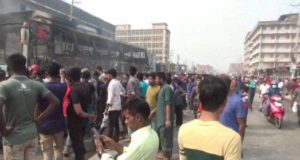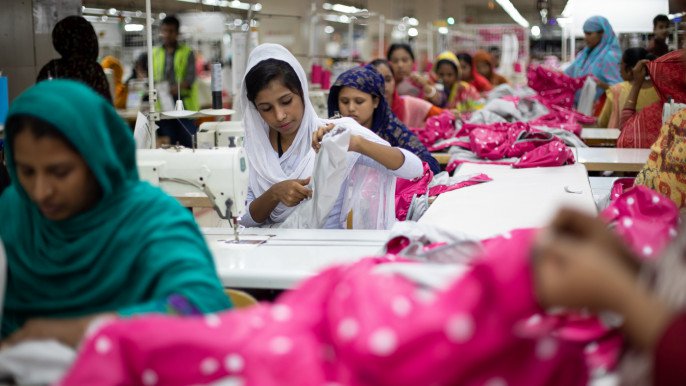Published in The Daily Star on February 15, 2018

The percentage of workers whose consent is required for forming trade unions in garment factories will be brought down from 30 to 25, a government move apparently resulting from pressure from international communities.
“We have already made the draft of the amendment and sent it to International Labour Organization for its observation with the provision of 25 percent requirement instead of 30 percent to ease the formation of unions,” said Md Mojibul Haque, state minister for labour and employment, at his secretariat office in Dhaka yesterday.
He said the labour law would be placed in the parliament’s next session to finalise it as a law.
Haque was speaking to reporters after a meeting with leaders of a parliamentary delegation of the European Union.
The 11-member delegation led by Jean Lambert met Haque to know about the progress of the amendment of the labour law, something pending for a couple of years. The revision aims to ensure more labour rights mainly to sustain the trade privileges on garment export to the EU markets.
The EU is Bangladesh’s main export destination, accounting for 54 percent of the country’s national exports and 60 percent of garment exports.
Bangladesh amended the labour law in July 2015 after the Rana Plaza building collapse, allowing full freedom of association to form unions with the requirement to get the consent of 30 percent of workers.
However, workers in many factories can not form the unions because of the obligation.
Getting signatures of 30 percent of workers in a factory is an uphill task for union leaders, as many workers do not want to participate in the process out of fear of getting sacked.
The impasse prompted the EU, the ILO, and international rights groups to put pressure on the government to amend the labour law again to bring down the requirement as well as bring changes to the labour law governing the country’s eight export processing zones (EPZs).
Also, the EU, on several occasions, has threatened it would temporarily suspend the generalised system of preferences benefit Bangladesh enjoys as a least developed country if the labour rights do not improve further.
The benefit grants duty-free, quota-free access for all exports, except arms and ammunition.
Haque said if necessary the government would relax the rules further to ensure equitable practice of the law.
He said if the number of workers in a factory is 1,000, the management will have to follow the 25 percent requirement since the number is low. But in case of a factory with a lot of workers, say 50,000 or more, the required rate might not be applicable; instead, a threshold of workers would be fixed as a benchmark, the state minister said. Haque declined to make an elaborate comment on the amendment of the labour law of the EPZ, saying the EPZs are controlled by the Prime Minister’s Office.
“However, I can say that the EPZ labour law would also be amended as per the commitment of the government to the ILO,” he said. More than 700 trade unions are active in the garment factories, much higher than the 120 unions that were active in the sector before the Rana Plaza building collapse, which killed 1,138 workers and injured 2,500.
The state minister said the government would form two more labour courts — one in Sylhet and another in Rangpur– so that the workers in the regions can have their cases resolved quickly. Currently, the workers of Sylhet region need to go to Chittagong and those from Rangpur division to either Rajshahi or Bogra to have their cases settled quickly and at less expense.
There are three labour courts in Dhaka. However, there is no such court in labour-intensive areas such as Gazipur, Narsingdi, and Narayanganj. The government plans decentralisation to set up the courts in nearby districts, said Haque.
The EU delegation members declined to talk to the press.
 CPD RMG Study Stitching a better future for Bangladesh
CPD RMG Study Stitching a better future for Bangladesh



